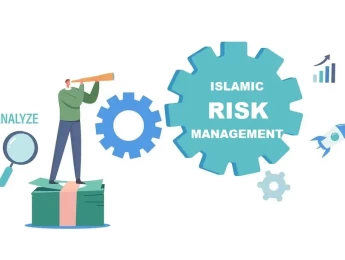One of the key complexities of a donor-funded program is using the funds wisely and supporting social aims. It also involves managing the donors' expectations and considering their ideas and requirements based on their donated funds.
The planning and strategies involved in non-government organisations (NGOs) are key to any project's development and overall success. Your long-term goals are accountable to those donors who spend their money to develop socio-economic projects and leave the essential funds in the hands of project managers and developers to get the most return from their investment. You will need to create a strategic framework to meet your aims and objectives while ensuring future development, mitigating any fraud or theft, making essential and crucial decisions based on social needs and the requirements of your donors, and building credibility throughout your fundraising efforts.
This monetary management in donor-funded programs course is extremely practical and designed to enhance your responsibilities, credibility, and clarity when overseeing accounting and financial procedures in complex periodic donor-funded non-government projects.
Upon completion of this course, participants will be able to:
- Implement ways to plan for mistakes and arrange essential performance management surrounding accountability in donor-funded projects.
- Understand the essentials involved in all donor-funded projects.
- Professionally manage processes and people by using the systems specifically for donor-funded projects.
- Perform in-house controls to manage finance & governance and achieve compliance requirements.
- Avoid fiduciaries in the business and reduce any monetary loss.
- Use acquired funding for the correct purposes and accurately communicate all financial reports.
- Understand how to develop and analyse monetary statements against previous years and future predictions.
- Plan budgets and develop cash flow strategies.
- Implement risk management procedures involved in donor-funded projects.
This course is for anyone responsible for distributing donor funds sensibly to obtain the best possible social and economic outcomes within a future-thinking business plan. It would be most beneficial for:
- Board Members
- Donor-funding Managers
- Fundraising Managers
- NGO Candidates
- Governance Directors
- Auditors
- Compliance Managers and Officials
- Financial Managers
- Public Sector Experts
This course will utilise proven adult learning techniques to maximise knowledge retention and comprehension of available information.
This will include real interactive case studies to understand how best to utilise donor funding, browsing the latest tools and techniques to discover the best possible plan for your particular organisation, and group discussions to devise strategic workflows based on previous action plans that gain the most benefit from your funding and also meet your donor's expectations.
Day 5 of each course is reserved for a Q&A session, which may occur off-site. For 10-day courses, this also applies to day 10
Section 1: Introduction to Donor-Funded Monetary Management
- Defining donor-funded projects.
- Introduction to monetary management for donor-funded projects.
- Key objectives in donor funds.
- Gaining knowledge of monetary statements.
- Understanding of financial statements.
Section 2: Working with Cost & Budgeting for Donor Funded Projects
- How to develop a cost-benefit analysis for your project.
- Budgeting and how to allocate funds.
- Activity-based costing.
- Cost margins and absorption.
- Accounting and decision-making for your future.
- Types of budget.
- Investments and appraisal for project plans.
Section 3: Donor Funds Management
- Legal donor positions.
- Withdrawals and contractual agreements.
- Your break-even analysis and how to find it.
- Creating adequate reports for donor funding to determine success.
- Managing donor expectations.
- Negotiation techniques and presenting positives.
Section 4: Project Planning
- Your project framework and cycle.
- Planning your schedule to match your funding.
- Evaluation of international aid.
- Network analysis and developing a functional future pathway.
Section 5: Reporting on Success Factors
- Internal controls and success factors.
- What ‘good’ looks like.
- Qualitative vs. quantitative data.
- Accounts, record keeping, and how to audit for a positive outcome.
- Detecting fraud and creating prevention methods.
- Monitoring the changes and opportunities that donor investment has created.
- Performance management tools and their effectiveness.
Section 6: Risk Management, Governance, and Disclosures
- Independent results and accurate auditing.
- Record keeping and reviewing old results.
- Accountability for budgeting issues.
- Corruption and anti-bribery procedures.
- Identifying risks and planning mitigation techniques.
- Governance and compliance requirements.
- Creating your control framework for future investment.
Upon successful completion of this training course, delegates will be awarded a Holistique Training Certificate of Completion. For those who attend and complete the online training course, a Holistique Training e-Certificate will be provided.
Holistique Training Certificates are accredited by the British Assessment Council (BAC) and The CPD Certification Service (CPD), and are certified under ISO 9001, ISO 21001, and ISO 29993 standards.
CPD credits for this course are granted by our Certificates and will be reflected on the Holistique Training Certificate of Completion. In accordance with the standards of The CPD Certification Service, one CPD credit is awarded per hour of course attendance. A maximum of 50 CPD credits can be claimed for any single course we currently offer.
- Course Code IND17-101
- Course Format Classroom, Online,
- Duration 5 days














